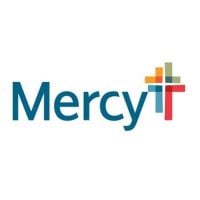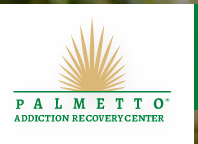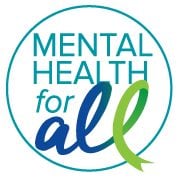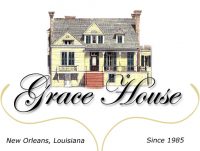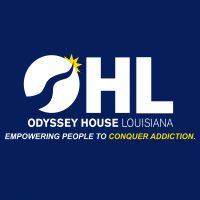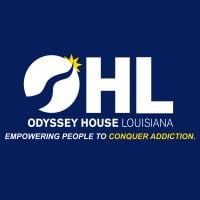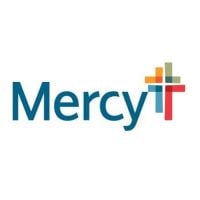Ochsner Addictive Behavior Treatment
Drug Rehab Center in New Orleans, Louisiana
Ochsner Addictive Behavior Treatment in New Orleans offers comprehensive and individualized treatment options for addiction, including medication-assisted treatment, individual and group therapy, family therapy, and recovery support, and is accredited by The Joint Commission and licensed by the Louisiana Board of Addiction Counselors.
About Ochsner Addictive Behavior Treatment in Louisiana
Ochsner Addictive Behavior Treatment in New Orleans, Louisiana offers a comprehensive approach to treatment for addiction and substance abuse. Their staff of professionals is trained to provide the most effective treatment options to those struggling with the disease of addiction. They offer multiple levels of care to fit each patient’s individual needs, including both inpatient and outpatient options. At Ochsner, patients can receive evidence-based treatments like medication-assisted treatment (MAT), individual and group therapy, family therapy, and recovery support. No matter the level of care, every patient at Ochsner receives a customized treatment program based on their individual needs.
At Ochsner, the staff works to identify and address the physical, psychological, and social challenges that come with the disease of addiction. They strive to develop a supportive and caring environment that is conducive to the healing process. Ochsner provides access to resources and individualized care plans like relapse prevention strategies and lifestyle changes that help patients develop strategies to maintain sobriety. Their highly trained and certified team also work to provide individualized addiction counseling and medical management to address the specific needs of each patient.
Ochsner Addictive Behavior Treatment is dedicated to providing the highest quality care to individuals and families struggling with addiction. In addition to their patient-centric approach to treatment, they are also accredited by The Joint Commission, the industry standard for health care accreditation in the United States. They also hold an addiction counseling license from the Louisiana Board of Addiction Counselors and are a member of the National Association of Addiction Treatment Providers. Ochsner offers a variety of unique programs geared to meet the specific needs of each patient, from intensive residential treatment to care coordination services.
Genders
Ages
Modality
Additional
Accreditations
SAMHSA

JCAHO
Conditions and Issues Treated
Opioid addiction has become a significant health problem in the United States. In 2015, there were 91 opioid overdose-related deaths per day, with a substantial increase in mortality rate in 2014.
When opioid addiction has reached a point where a person’s life becomes unmanageable, treatment options are available to help them get sober. Treatment that includes medical care with medications and counseling can help a user transition into sobriety.
Levels of Care Offered
This center offers a variety of custom treatment tailored to individual recovery. Currently available are Aftercare Support, Detox, Drug Rehab, Intensive Outpatient, Outpatient, Partial-Hospitalization, Residential, with additional therapies available as listed below.
One of the first things an addict should do when entering treatment is to abstain from using illicit drugs completely. Depending on the length of time that the person has been using, the addict may have to go through alcohol or drug withdrawal. Fortunately, detox doesn’t have to be done alone, and withdrawal symptoms can be managed medically in an inpatient or outpatient setting. While detox may be uncomfortable, it is not life-threatening. Detoxification allows the addict to rid the body of all traces of drugs or alcohol and gives the addict a clean slate for their recovery.
The Intensive Outpatient Program offered by Ochsner Addictive Behavior Treatment is designed for those who need intensive care but would rather get it in the comfort of their own home. The treatment programs vary in duration and intensity and can be tailored to suit the patient’s needs. The program includes regular visits to the facility, though the overnight stay is not needed. IOP is suitable for patients who have been treated in residential treatment programs and are in the transition phase. It helps the patient live at home and discharge some work or school responsibilities even while undergoing treatment. The patients gradually get back to their routine life with the support of a friend or family member.
Outpatient treatment is often used for drug addicts in drug rehab. Outpatient treatment consists of counseling and therapy sessions. This form of treatment is also called ‘day-treatment’. The outpatient treatment process begins with the addict’s initial detox period, lasting about ten days.
Outpatient treatment is used for those who are at moderate risk for ‘slipping back’ into the addiction, for those who:
- Are not currently experiencing any side effects from withdrawal and can handle social pressure
- Can handle stressors that might trigger relapse
- Have a stable living environment or have moved out of their previous environment, which was not conducive to being sober
- Have a support system that allows them to go to a facility a few times a week while still keeping their current responsibilities
- Have no legal obligations, being either on parole or probation, that require them to seek treatment at a mandatory facility
- Are not currently experiencing any side effects from withdrawal and can handle social pressure
- Have a stable living environment or have moved out of their previous environment, which was not conducive to being sober
Partial hospitalization programs offer another level of addiction treatment at Ochsner Addictive Behavior Treatment.
Residential treatment programs are those that offer housing and meals in addition to substance abuse treatment. Rehab facilities that offer residential treatment allow patients to focus solely on recovery, in an environment totally separate from their lives. Some rehab centers specialize in short-term residential treatment (a few days to a week or two), while others solely provide treatment on a long-term basis (several weeks to months). Some offer both, and tailor treatment to the patient’s individual requirements.
Completing a drug or alcohol rehab program is only the first step. Then comes aftercare support. These services include sober living accommodations, career counseling, and AA/NA programs for those struggling with sobriety or who want help maintaining it after initial rehab at an addiction facility.
They can last up to a year or more depending on what’s needed most urgently after the earlier stages are completed.
Therapies & Programs
Because no single treatment is effective for all addicts, the goal of treatment and therapy should be to figure out what works best for each individual. Tolerance and withdrawal levels differ from person to person, affecting the treatment intensity required. Addiction treatment should aim to help addicts develop healthy coping mechanisms for dealing with their addiction and its underlying causes.
Couples therapy works with clients and significant others in a professional capacity to improve relationship dynamics. This can be helpful for addicts who are trying to marry the idea of recovery into their work, family, social lives – any aspect that has to do with relationships. Through counseling sessions, addicts will have an opportunity to talk about their addiction with professional partners.
Family therapy is beneficial for people who are in addiction treatment services because it offers addicts the opportunity to work with their family members to better understand what led them to make choices that contributed to their addiction.
This type of therapy helps family members reach a deeper understanding of how they can best support their loved one during recovery. It also helps the addict better understand their own motivations and triggers that led them to turn to substance abuse.
Family therapy can help addicts in the following ways:
- Assists family members in processing difficult feelings so they don’t blame or resent recovering addicts
- Assists family members in understanding how addiction has impacted the addict and everyone who is involved with them
- Allows the addict to take responsibility for their actions, while encouraging improved communication skills
- Helps family members understand how to best support an individual in recovery so addicts don’t relapse again.
Group therapy can help build a stronger support system and give addicts in New Orleans, LA insight into their addiction that they gain through shared conversations. Group therapy occurs in a controlled group environment, exclusive of one on one meetings. This makes it safer for patients to feel comfortable sharing the struggles they’re going through and gaining perspective.
Trauma therapy is beneficial for people who are recovering from drug addiction because it helps them heal from past traumas that may have caused them to turn to harmful substances or led them to experience negative emotions that contributed to their destructive behaviors.
This type of treatment works by processing difficult experiences so individuals can learn how to process these events without having to turn to substances for coping.
Trauma therapy can help addicts in the following ways:
- Helps individuals understand their experiences and emotional responses to difficult events, including why they turned to drugs or alcohol
- Provides them with comfort and support while working through difficult emotions related to these traumatic experiences
- Offers an opportunity for addicts to have a voice and be heard, which can improve their self-esteem
- Can help them develop coping skills so they can better respond to triggers instead of turning to substance abuse.
Dialectical Behavior Therapy (DBT) is a cognitive-behavioral therapy that helps patients understand the relationship between their thoughts, feelings, and behaviors. It is beneficial for those whose addictions and behaviors stem from severe mental health issues. The term “Dialectic” means the integration of opposites. In substance abuse, DBT refers to accepting the patient’s addiction and working to change their thoughts and behavior. It improves life skills such as controlling intense emotions without reacting impulsively, resolving interpersonal conflicts effectively, and promoting awareness about self and others.
Cognitive-behavioral therapy is a technique that is used to help people with addiction. Specifically, it is a way of identifying thoughts and behaviors that cause the addiction. It is typically used in an individual counseling session.
The content explains cognitive behavioral therapy and how it works to address some behaviors that may be leading to unintended consequences in their life, as well as its benefits for those seeking sobriety.
It works by helping people to talk through their issues and addressing the thoughts that cause said behaviors. It is an excellent way of learning about oneself and one’s perception of the world.
Addicts seeking sobriety can find quick results with Rational Emotional Behavior Therapy. This type of counseling offered by Ochsner Addictive Behavior Treatment replaces negative and self-limiting thoughts with positive and productive behaviors. This allows addicts to move forward without having to deal with ongoing treatment throughout their lives. Individuals who are seeking sobriety can find quick results with Rational Emotional Behavior Therapy.
Life Skills Services assist addicts in their recovery by teaching them healthy coping mechanisms that will aid them in becoming sober, focussing on helping people enter into, and maintaining long-term sobriety. Drug Treatment Centers provide Life Skills Services at varying levels of intensity, specific to the needs and requirements of each patient.
The benefits of Life Skills Services offered at Ochsner Addictive Behavior Treatment:
- Restores hope and empowerment — Helps addicts believe that recovery is possible and instills a new confidence in their ability to achieve a positive, drug-free future
- Enhances family involvement — Encourages families to get involved in the recovery process and supports their understanding and encouragement of healthy behavior.
- Increases patient’s compliance — Helps patients take responsibility for and ownership of their recovery and encourages continued progress
- Reduces relapse rates — Encourages long-term abstinence and emphasizes the importance of establishing sober support systems.
Payment Options Accepted
For specific insurance or payment methods please contact us.
Is your insurance accepted?
Ask an expert, call (888) 674-0062
Additional Details
Specifics, location, and helpful extra information.
New Orleans, Louisiana 70121 Phone Number(504) 842-4470 Meta DetailsUpdated November 25, 2023
Staff Verified
Ochsner Addictive Behavior Treatment Patient Reviews
There are no reviews yet. Be the first one to write one.
New Orleans, Louisiana Addiction Information
Louisiana is one of the top ten states in the nation for opioid-related deaths. One in ten high school students admits to regularly using prescription opioids for non-medical purposes. More than 225,000 Louisiana residents admit to regular heavy drinking and around 6% of the Louisiana population abuses alcohol. Marijuana use in Louisiana is most common amongst teenagers between the ages of 12 and 17 years old.
Drug addiction and abuse can greatly impact the community in New Orleans. 115 people die from an opioid overdose every day. Families are torn apart, friends are lost, and lives are forever changed due to drugs. Treatment centers in New Orleans generally follow the 12-step model of recovery, which includes steps such as admitting powerlessness over the addiction, making amends for past wrongs, and helping others who are still struggling.
Treatment in Nearby Cities
- Chalmette, LA (10.9 mi.)
- Saint Francisville, LA (93.2 mi.)
- Slidell, LA (30.8 mi.)
- Ville Platte, LA (136.6 mi.)
- Columbia, LA (187.4 mi.)
Centers near Ochsner Addictive Behavior Treatment
The facility name, logo and brand are the property and registered trademarks of Ochsner Addictive Behavior Treatment, and are being used for identification and informational purposes only. Use of these names, logos and brands shall not imply endorsement. RehabNow.org is not affiliated with or sponsored by Ochsner Addictive Behavior Treatment.




